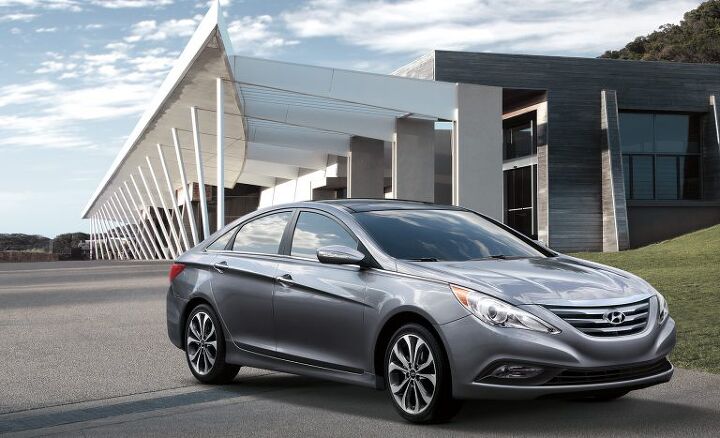NHTSA Opens Investigation Into Hyundai's Theta II Engine Debris Recalls

The timeliness of a recall of Hyundai and Kia vehicles equipped with Theta II four-cylinder engines is the focus of a formal National Highway Traffic Safety Administration investigation revealed today.
Metal engine debris resulting from a faulty production process is behind the expansive recall of nearly 1.7 million vehicles, but the NHTSA wants to know if the recall expanded too slowly. Just how much Hyundai knew about the widespread issue is a big question mark, made all the more pressing by the testimony of a company whistleblower.
According to Reuters, filings published today show the NHTSA opened an investigation on May 18th into “both the timeliness and scope” of the recalls, as well as Hyundai’s “compliance with reporting requirements.”
The automaker has stated it will cooperate with the investigation.
The issue facing older 2.4-liter and turbocharged 2.0-liter Theta II powerplants involves metal shavings surrounding the crankshaft of the engines. That debris can contaminate the engine oil, leading to restricted oil circulation, component wear, and the potential for engine failure.
While the recalls eventually covered numerous Hyundai and Kia vehicles in the U.S., Canada and South Korea, the company appears to have been slow to address the problem. The first recall, in 2015, involved just 470,000 Sonata sedans sold in the U.S., despite the exact same engine appearing in other models. Earlier this year, the company recalled a slew of 2013 and 2014 Sonata and Santa Fe vehicles, while Kia called back over half a million 2011-2014 model year Optima, Sorento and Sportage models to address the engine debris problem.
A former longtime Hyundai engineer, Kim Gwang-ho, has loomed over the issue since the recalls began. Last August, Kim delivered a stack of internal documents to the NHTSA, explaining his concerns that the problem was far more widespread than the automaker let on. The engineer claims to have attended a July 2015 meeting in Seoul where colleagues discussed downplaying the problem to avoid a huge repair bill.
The latest recall has cost the company $322 million.
[Image: Hyundai]

More by Steph Willems
Latest Car Reviews
Read moreLatest Product Reviews
Read moreRecent Comments
- Peter Buying an EV from Toyota is like buying a Bible from Donald Trump. Don’t be surprised if some very important parts are left out.
- Sheila I have a 2016 Kia Sorento that just threw a rod out of the engine case. Filed a claim for new engine and was denied…..due to a loop hole that was included in the Class Action Engine Settlement so Hyundai and Kia would be able to deny a large percentage of cars with prematurely failed engines. It’s called the KSDS Improvement Campaign. Ever hear of such a thing? It’s not even a Recall, although they know these engines are very dangerous. As unknowing consumers load themselves and kids in them everyday. Are their any new Class Action Lawsuits that anyone knows of?
- Alan Well, it will take 30 years to fix Nissan up after the Renault Alliance reduced Nissan to a paltry mess.I think Nissan will eventually improve.
- Alan This will be overpriced for what it offers.I think the "Western" auto manufacturers rip off the consumer with the Thai and Chinese made vehicles.A Chinese made Model 3 in Australia is over $70k AUD(for 1995 $45k USD) which is far more expensive than a similar Chinesium EV of equal or better quality and loaded with goodies.Chinese pickups are $20k to $30k cheaper than Thai built pickups from Ford and the Japanese brands. Who's ripping who off?
- Alan Years ago Jack Baruth held a "competition" for a piece from the B&B on the oddest pickup story (or something like that). I think 5 people were awarded the prizes.I never received mine, something about being in Australia. If TTAC is global how do you offer prizes to those overseas or are we omitted on the sly from competing?In the end I lost significant respect for Baruth.


































Comments
Join the conversation
We once owned a Hyundai Veracruz (3.8 V6) which produced a toenail-clipping-sized metal spiral at the first oil drain; clearly leftover debris from the manufacturing process. In theory this sort of thing is "normal", and one of the reasons to do your first oil change promptly. Still, it's not very confidence-inspiring.
Funny, when they came out with their big warranty, everyone started preaching how reliable their new cars were. Not only is their warranty itself unreliable, but as I always said, you can't call a car reliable until they're 5-10 years old and the data is in.